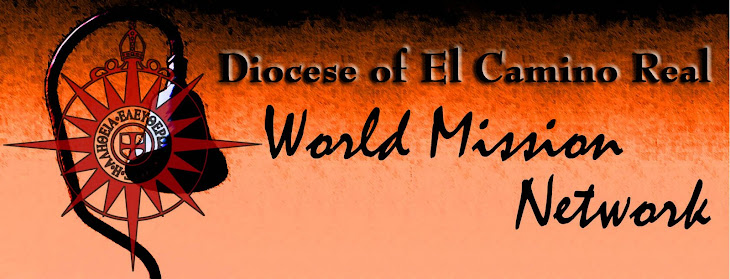This update will address issues in both Darfur and Kordofan.
In recent days there has been a flurry of worrisome reports. The first was that Khartoum and the Sudan People's Liberation Movement (SPLM) -- which runs the semi-autonomous south and is a partner in the Government of National Unity -- both have been building up their armies ahead of the 2009 elections and 2011 referendum when the South will choose whether to secede from the north. Khartoum has been purchasing arms from China and North Korea, including fighter jets and tankers, while the Southerners, suspecting that Khartoum is bent on scuttling the 2005 Comprehensive Peace Agreement (CPA), have been preparing for any eventuality.
There have been reports about the kidnapping of nine Chinese oil workers, the third such incident in the energy-producing state of South Kordofan in the past year, and the death of five of them. Who was responsible for the
kidnapping and the deaths is unclear, but what is clear is that analysts say the underdeveloped region could become another violent flashpoint. Although the kidnapping took place in South Kordofan, the Justice and Equality Movement (JEM), one of the Darfuri rebel factions, is being blamed. If indeed JEM is responsible, its action expands insecurity from neighbouring Darfur into the Kordofan region.
Pray for peace for the people of Sudan.
In His Service,
Bill
Bill Andress
Sudan Advocacy Action Forum
************************************************************************
Sudan Update 29-2008
October 31, 2008
SAAF Note: People who want to help make a difference in Darfur
frequently ask if sending money to aid organizations would be beneficial. The painful answer is that the factors that currently inhibit the aid agencies have less to do with insufficient funds and are more related to issues of insecurity and violence perpetrated by the Government of Sudan (GoS) and in some instances warlords who have taken advantage of the internally displaced persons (IDPs).
Darfur: Humanitarian Access
Humanitarian access in Darfur is primarily determined by a combination of three factors:
1. The degree of general insecurity, which may require the United Nations and other humanitarian partners to suspend or limit operations in certain unsafe areas for a certain amount of time;
2. The continued harassment of humanitarian organizations and workers, including blanket denial of humanitarian access, bureaucratic obstacles,detention and intimidation of national staff, bullying and temporary denial of access to affected areas and IDP camps.
3. Targeted attacks on humanitarians and their assets, including hijacking of cars and abduction of personnel, physical violence directed towards humanitarian workers, road ambushes, destruction of NGO assets and armed break-ins in humanitarian compounds. Between July and October, one national humanitarian worker was killed and 12 wounded. So far this year, 11 national humanitarians have been killed against 13 during the whole year 2007. One hundred and forty-four times humanitarian premises have been assaulted/broken into during the first nine months of 2008 against 93 for the whole of 2007. (UN Office for the Coordination of Humanitarian Affairs Report: Section II, page 4)
Darfur: Education
Preliminary data gathered at the beginning of the 2008 school year (June-July) showed encouraging progress with 126,619 children (96,923 boys and 56,696 girls) enrolled as 1st graders in the three states in Darfur. Total primary school enrolment in Darfur, according to Ministry of Education data, is now nearly 977,000 - 65 per cent of the primary school population. SAAF Note:
This is far better support of education than is experienced in Southern Sudan.
Darfur: Child protection
In August, a new Family and Child Protection Unit officially opened in North
Darfur, following the establishment of a similar unit in West Darfur earlier in
the year. The units are managed by local GoS police, with support from UNICEF, and provide specialist services to victims, offenders and witnesses of abuse and exploitation - services include social work, legal aid, psychosocial support, forensic evidence collection and child friendly investigation. The Units are also engaged in awareness raising and monitoring in communities, targeting high-risk areas with prevention activities and messages and through community dialogue. Preparations for a third Unit in South Darfur are ongoing and will open with UNICEF support in January 2009. (Office for the Coordination of Humanitarian Affairs Report: Section IV, pages 14- 15)
Sudan's Southern Kordofan Problem: The Next Darfur?
The Comprehensive Peace Agreement (CPA) that ended Sudan's generation-long North-South civil war in 2005 is at risk in Southern Kordofan state, where many of the same ingredients exist that produced the vicious Darfur conflict.
Southern Kordofan is a new state, created by the CPA, in the critical border area between North and South, a zone of ethnic interaction between Arab(mainly Misseriya and Hawazma) and indigenous African (mainly Nuba) tribes. Inadequate implementation of the CPA's special protocol relating to the region has led to insecurity and growing dissatisfaction. Tribal reconciliation based on negotiation of a common agenda, establishment of an efficient state government administration and adherence to the CPA's principles of power and wealthsharing have to be fostered from Khartoum and pushed forward by the international guarantors. There has been some limited recent progress, but much more is urgently needed.
The state's inhabitants were mobilized by the opposing sides during the North/South war and despite the CPA remain deeply scarred by that conflict, polarized and fragmented along political and tribal lines. They are armed and organized and feel increasingly abandoned by their former patrons, who have not fulfilled their promises to provide peace dividends. Return of internally displaced persons (IDPs), development projects and creation of an integrated state government administration have all stalled. Hundreds of people have died in disputes over land and grazing rights, with no comprehensive or sustainable local or national response. Efforts by the NCP and SPLM to co-opt Arab and African tribes, respectively, prior to elections by politicizing development policies are aggravating tensions.
(ICG Report, October 2008) http://www.crisisgroup.org/home/index.cfm?id=5738&l=1)





No comments:
Post a Comment